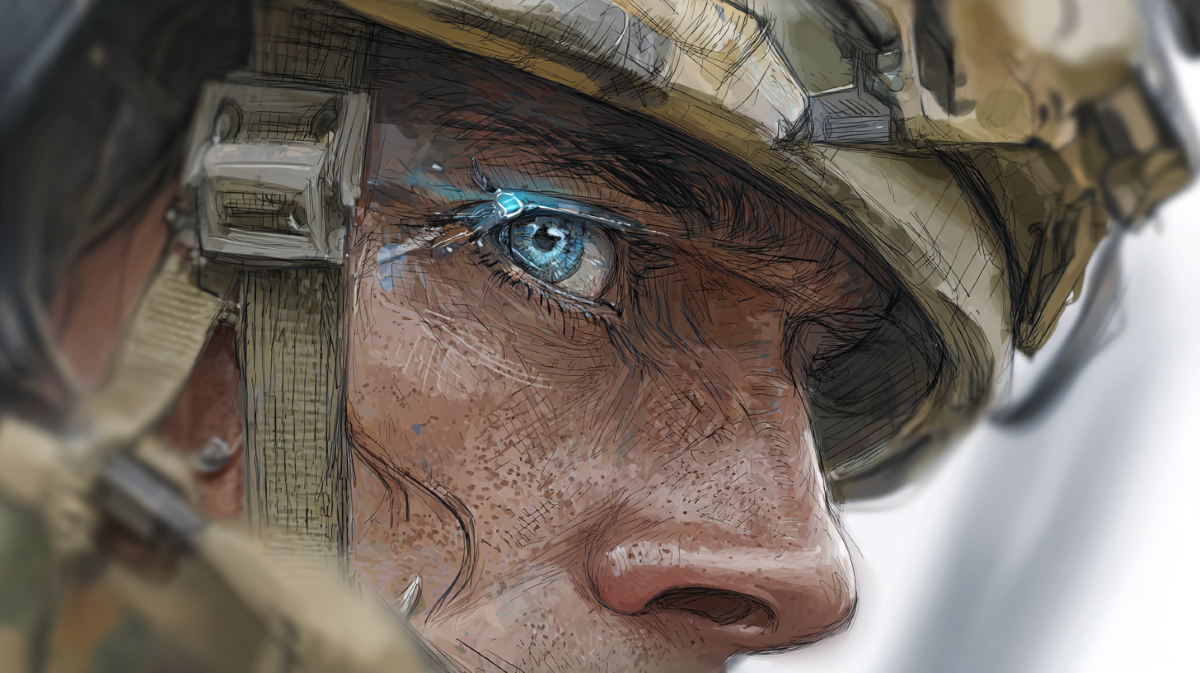Science
Exploring Biotech’s Role in Modern Warfare with Diane DiEuliis

Biotechnology is rapidly transforming military capabilities, according to an interview with Diane DiEuliis, a distinguished research fellow at the National Defense University. In a discussion about the intersection of biology and defense, DiEuliis emphasized the growing importance of emerging biological technologies in enhancing warfighter performance and national security. As nations race to develop and control these innovations, understanding their potential applications and implications is crucial.
In the near term, DiEuliis anticipates that advancements focusing on incremental improvements in physical performance will be the first to be adopted. Technologies such as wearable exoskeletons, which can enhance strength and endurance, are among the most promising. These innovations aim to meet the needs of soldiers who require enhanced capabilities in challenging environments. As noted in the report “Cyborg Soldier 2050,” more complex enhancements related to cognition and behavior will take longer to develop, necessitating careful ethical considerations.
Biotechnology is often depicted in popular culture as a force multiplier or a tool for strategic dominance. DiEuliis asserts that the next decade will likely see a competitive global landscape focused on bioeconomic growth, particularly in medicine and agriculture, but also in emerging fields like materials and energetics. This competition relies heavily on complex data, referred to as “biodata,” which underpins the knowledge necessary for functional biotechnological innovations.
Looking to the future, DiEuliis highlighted the dual-use nature of biotechnology, where advancements can serve both beneficial and harmful purposes. For example, recent efforts to recreate extinct species, such as the Dire Wolf, underscore the potential for biotechnological breakthroughs to reshape our understanding of biology and ecology. Nevertheless, she cautioned against potential misuse and the unforeseen consequences of these technologies, emphasizing the need for strategic foresight and ethical guidelines.
The collaboration between the commercial biotech sector and defense industries is essential for maximizing the benefits of these innovations. DiEuliis recalled her earlier observations about the challenges faced by the U.S. Department of Defense in coordinating with the rapidly evolving synthetic biology industry. While initiatives like BioMade aim to foster biomanufacturing capabilities within the defense sector, successful civilian applications must be adapted for military use.
As the Defense Department explores new funding models for innovative technologies, recent provisions in the National Defense Authorization Act reflect a growing recognition of biotechnology as a strategic capability. DiEuliis pointed out that Congress is now mandating a programmatic infrastructure to support biotechnology initiatives, including the development of a “bioliterate” workforce skilled in navigating domestic biotechnological supply chains.
The ever-evolving landscape of biotechnology also raises critical questions about operational risks. DiEuliis expressed concern about potential vulnerabilities inherent in deploying biotechnological solutions, particularly regarding adversaries’ ability to exploit these advancements. She highlighted the importance of integrating risk assessments into strategic planning to address these challenges effectively.
In discussing the future of biomanufacturing, DiEuliis underscored the role of biotechnology in revitalizing U.S. manufacturing. She pointed to successful examples, such as a former steel mill in Philadelphia that has been repurposed as a biomanufacturing hub, as models for future initiatives. This aligns with broader goals to leverage regional strengths across the United States in the pursuit of a robust bioeconomy.
Despite the potential benefits, DiEuliis acknowledged the hurdles that remain for bio-manufactured products, which often face higher production costs compared to traditional methods. The approval process for bio-based materials can be lengthy and complex, necessitating clearer standards and certifications to encourage broader adoption.
DiEuliis concluded by addressing misconceptions about biotechnology, particularly regarding its applications beyond health and defense. She emphasized the need for a balanced perspective that tempers enthusiasm with realism, particularly as the field continues to evolve rapidly. The intersection of artificial intelligence and biotechnology represents a double-edged sword, offering both unprecedented opportunities and significant risks.
As biotechnology becomes an increasingly foundational technology shaping various industries, it is imperative for stakeholders to ensure its benefits are harnessed securely. The insights provided by Diane DiEuliis offer a valuable perspective on the complexities of integrating biotechnology into national defense and the broader implications for society.
-

 Health3 months ago
Health3 months agoNeurologist Warns Excessive Use of Supplements Can Harm Brain
-

 Health3 months ago
Health3 months agoFiona Phillips’ Husband Shares Heartfelt Update on Her Alzheimer’s Journey
-

 Science2 months ago
Science2 months agoBrian Cox Addresses Claims of Alien Probe in 3I/ATLAS Discovery
-

 Science2 months ago
Science2 months agoNASA Investigates Unusual Comet 3I/ATLAS; New Findings Emerge
-

 Science1 month ago
Science1 month agoScientists Examine 3I/ATLAS: Alien Artifact or Cosmic Oddity?
-

 Entertainment5 months ago
Entertainment5 months agoKerry Katona Discusses Future Baby Plans and Brian McFadden’s Wedding
-

 Science1 month ago
Science1 month agoNASA Investigates Speedy Object 3I/ATLAS, Sparking Speculation
-

 Entertainment4 months ago
Entertainment4 months agoEmmerdale Faces Tension as Dylan and April’s Lives Hang in the Balance
-

 World3 months ago
World3 months agoCole Palmer’s Cryptic Message to Kobbie Mainoo Following Loan Talks
-

 Science1 month ago
Science1 month agoNASA Scientists Explore Origins of 3I/ATLAS, a Fast-Moving Visitor
-

 Entertainment2 months ago
Entertainment2 months agoLewis Cope Addresses Accusations of Dance Training Advantage
-

 Entertainment4 months ago
Entertainment4 months agoMajor Cast Changes at Coronation Street: Exits and Returns in 2025









